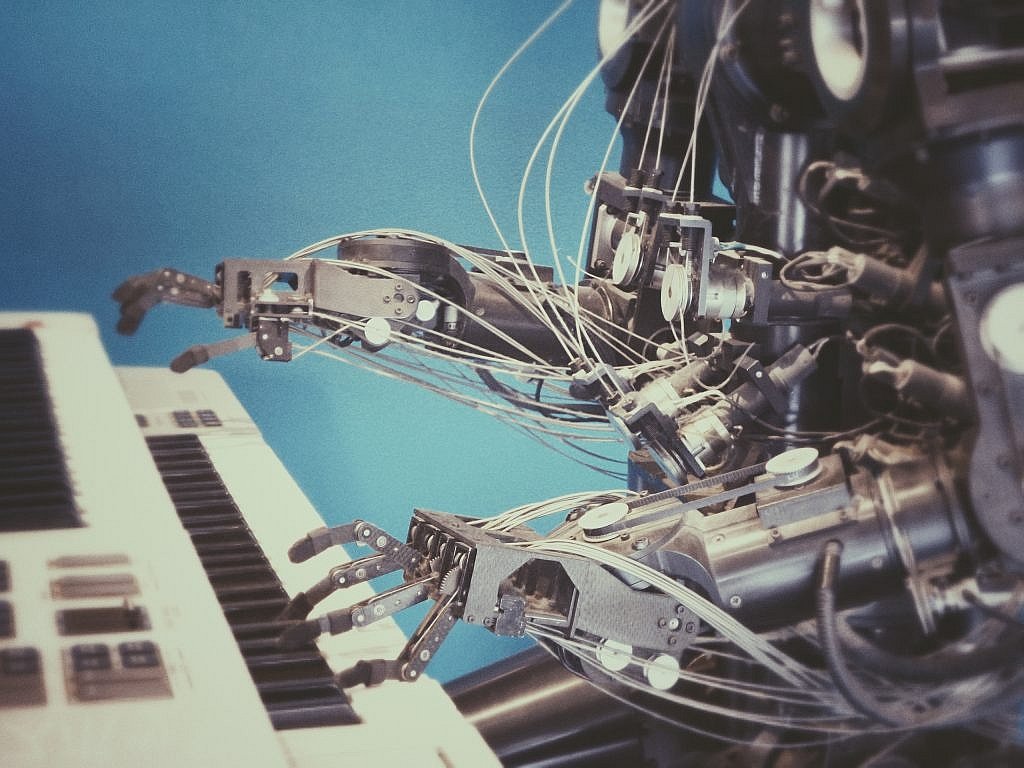Will Artificial Intelligence Really Take Up Human Jobs?
With the onset of Artificial Intelligence which is a big part of machine learning solutions, the human race seems to take a backseat and people feel that their intelligence is getting challenged by their competitor- Artificial Intelligence.
But, is this really true? In this article, we will be discussing about the pros and cons of Artificial Intelligence and how this technology has benefited the world. Also, after moving ahead, we will be discussing how artificial intelligence will be impacting the future of humans & will it completely move one step ahead of the humans? You will find answers to all these questions ahead.
Sci-fi has the ability to give the human personality a chance to envision the impossible. This has been displayed in the science fiction films of past days, which portrayed robots doing work for people, and people controlling robots according to their impulses and likes. Ever have you wondered what innovation this brilliant creative ability depends on? Man-made brainpower or AI? Today AI has made some amazing progress and is an integral part of our lives, regardless of whether it is climate forecasts, or email to the executives or voice-empowered gadgets. The base for these unpredictable errands are AI calculations that make the machine knowledge spring up. Yet, this was not generally the situation. We should think back in time and perceive how AI achieved the functional platform it remains on today.
What is Artificial Intelligence?
Before we dive in the detailed explanation, let’s first understand what exactly is AI. From chatbots to smartphones, AI has already made its place in our day-to-day lives. And with its emergence and popularity, this technology seems to take a step ahead in our lives. The benefits of using AI and positive user feedback is enticing more & more software development companies to adapt & use this technology.
Self-driving cars or SIRI, the most common and top examples that can be used to properly describe the AI technology. If you break up the terms: ‘’Artificial” ‘’Intelligence”- an artificial technology that makes use of the intelligence provided to solve various problems in the different situations. With the advances in this particular technology, it can feature just anything from Google’s search algorithm to the autonomous weapons.
But, the question that arises here is, has Artificial Intelligence moved ahead of the human brains? Will it take over the future of humans? Will humans lose jobs? These are some of the questions that you will find the answers to in this article.
The experts have anticipated that the organized artificial intelligence will intensify human adequacy, yet in addition undermine human self-sufficiency and capacities. They talked about the wide-running potential outcomes; that PCs may coordinate or even surpass human knowledge and capacities on errands. For example, complex basic leadership, thinking and learning, advanced investigation and example acknowledgment, visual sharpness, discourse acknowledgment, and language interpretation. As per the experts, the smart systems in the networks, in vehicles, in structures and utilities, on farms and in business procedures will spare more time, cash & lives and offer open doors for people to appreciate a more-tweaked future.
The following diagram shows the comparison between the human brain and a supercomputer:

Will Artificial Intelligence take up human jobs?
With the developing publicity around AI, comes significant worry among laborers dreading for their occupations, and which is all well and good. For each feature referencing the development of the AI business, there’s another that offers a viewpoint on how and why AI is a danger to human occupation. One study found that about 37% of positions in the U.S. could be “powerless” to AI by the mid-2030s. This study, alongside endless sources referencing AI’s danger to human occupations, might miss a basic component – the requirement for human enthusiastic knowledge and information investigation. In the event that we investigate the particular ways, AI is improving the working environment for HR experts, obviously the human factor won’t become out of date, despite the fact that jobs of representatives may change.
Human intercession is basic to the eventual fate of AI—and AI is basic to guaranteeing HR pioneers can keep on moving from playing out a carefully authoritative capacity in an organization to turning into a vital accomplice and benefactor. We’ve exposed that AI is representing a noteworthy risk to employments—so by what means can, HR pioneers make the most out of this developing innovation fragment? As we keep on applying AI and mechanization to HR forms, we should investigate the representative lifecycle, from enrolling and onboarding to off-boarding and outplacement, and everything in the middle.
Summary:
Human insight revolves around adjusting to the environment making use of the mix of a few of the psychological procedures. The field of Artificial intelligence centers around structuring the machines that can imitate human conduct. In any case, AI experts can go similarly as actualizing Weak AI, yet not the Strong AI. Indeed, some trust that Strong AI is not just possible because of the different contrasts between a computer and human brain. In this way, right now, the insignificant capacity to impersonate human conduct is considered as Artificial Intelligence.
Likewise, the usage of human consciousness will clearly make life considerably increasingly advantageous for mankind in the years to come and even power people to develop their ranges of abilities, it will maybe never be feasible for such machines to totally supplant the human asset.
